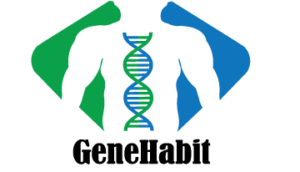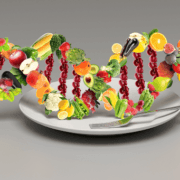How to Get Enough Zinc for Healthy Hair: Foods, Genes, and More!
 Zinc is a nutrient that is essential for human health. It has a variety of roles in the body, including helping to form DNA and proteins and aiding in cell division. Zinc is also important for hair health. A zinc deficiency can lead to hair loss and other disorders. Luckily, zinc can be found in a variety of foods, so it is relatively easy to ensure you are getting enough of this nutrient. Additionally, genes may play a role in how well you absorb zinc from food. A DNA test can help to identify any genetic variants that may affect zinc absorption and help mitigate the risk of hair loss with low zinc levels.
Zinc is a nutrient that is essential for human health. It has a variety of roles in the body, including helping to form DNA and proteins and aiding in cell division. Zinc is also important for hair health. A zinc deficiency can lead to hair loss and other disorders. Luckily, zinc can be found in a variety of foods, so it is relatively easy to ensure you are getting enough of this nutrient. Additionally, genes may play a role in how well you absorb zinc from food. A DNA test can help to identify any genetic variants that may affect zinc absorption and help mitigate the risk of hair loss with low zinc levels.
Role Of Zinc In Overall Health
Zinc is an essential mineral that supports the immune system and keeps your metabolism running smoothly. It’s also involved in protein synthesis, and cell division and promotes healing from wounds or cuts by binding with vital vitamins such as vitamin C to form a protective barrier against infection – all while helping you feel healthier!
What Role Does Zinc Plays In Your Hair Health?
If you’re like most people, you probably don’t think much about zinc. But this essential mineral plays a vital role in many of your body’s functions, including hair growth. Zinc is involved in the production of keratin, the protein that makes up your hair. It also helps keep your scalp healthy and free from dandruff. A lack of zinc can lead to hair loss and slow down new hair growth.
How Deficiency Of Zinc Can Impact Hair Health
A zinc deficiency can impact hair health in a number of ways. For starters, it can cause your hair to become dry and brittle. It may also lead to hair loss or thinning hair. In some cases, a zinc deficiency can even cause your hair to change colour, becoming dull or grey. If you are experiencing any of these symptoms, it’s important to see your doctor and get tested for zinc deficiency. If it is confirmed that you are deficient in zinc, your doctor may recommend taking a zinc supplement or making changes to your diet in order to increase your intake of this mineral. By doing so, you can help improve the health of your hair and prevent further damage.
How One Can Get Zinc?

Zinc is found in many foods, including meat, poultry, seafood, nuts, and legumes. If you’re not getting enough zinc from your diet, you may want to consider taking a zinc supplement. Talk to your doctor before starting any supplements.
The Most Recommended Zinc Supplement Products by health experts are:
Thorne Research Zinc Picolinate
Their zinc picolinate is no exception and provides an exceptional dose of zinc that the body can readily use. This product provides 30 mg of zinc, which does not exceed tolerable upper intake levels, and it comes in one convenient capsule.
How Do Genes Impact Zinc Absorption?

Genes play a role in zinc absorption, as they do with most nutrients. There are specific genes that code for proteins involved in transporting zinc into the cells, and others that regulate how much zinc is absorbed from the intestine. Mutations in these genes can lead to zinc deficiency, even if someone consumes enough zinc in their diet. The advancement in genetics and DNA technology has allowed scientists to reveal several genes associated with zinc absorption. One such reported vastly for low levels is the CA1 gene, which was linked to both UK populations as well Japanese individuals suffering from Androgenic Alopecia or also known as “Male Hair Loss”. The study conducted on these two groups displayed those who carried negative versions had lower serum Zinc values.
With DNA Test Mitigate Hair Fall Risk By Knowing Zinc Deficiency Risk
The DNA test can help to mitigate the risk of hair loss by detecting low zinc levels. The DNA test offered looks at an individual’s genetic profile and determines if they are more likely to experience baldness or thinning in their scalps due to insufficient amounts, with this new strategy you’ll be sure that your treatment has a much better chance for success because doctors know exactly which supplements work best based on someone’s unique makeup – meaning zero guesswork involved!
By Taking Up DNA Test You Can Mitigate These Hair Loss Conditions Before Its too late:
Zinc deficiency can lead to thinning or balding as well an increased risk from various other diseases such as Wilson’s disease, and sickle cell disease. DNA testing would be worth it!
If you like to know more about DNA tests and how vitamins-minerals are processed by our bodies for hair health visit here
Have a look at our products with consent links:
HairLife DNA test is designed to identify and understand the risk of premature hair loss, greying, thinning, and baldness due to genetic factors, nutritional deficiencies, and stress. HairLife DNA test also identifies the specific type of hair issue and helps you to get a personalized hair care solution for the same. This personalized hair care solution will be recommended to keep your hair healthy and nourished based on your genetic reports. Click here to read more about the HairLife test
GeneFit DNA Test provides a 360-degree personalized genetic insight about your lifestyle and well-being risks that include – the risk of weight gain or loss, nutritional deficiencies, food sensitivities, optimal fitness activities, sleep, and stress. Click here to read more about the GeneFit test.
NutriLife DNA test gives an insight into your micronutrient requirements based on your genetic report. Get personalized recommendations for essential nutrient intake with the NutriLife DNA test report and include the recommended food sources in your diet to maximize the health benefits. The genetic tests also identify your food allergies, food sensitivities, and taste perception which impacts your food absorption in the body. Click here to read more about the NutriLife test



 Iron is an essential mineral for human health, playing a role in many different bodily functions. One of the most well-known roles of iron is its importance in the formation of red blood cells. However, iron also plays a critical role in hair health. Iron is essential for life. It’s used in many processes including oxygen transport and production of hormones, but most importantly it helps your body grow! Iron is a vital mineral for the health and beauty of your hair, but it often gets neglected. If you’re losing hairs then get checked to see if there’s an issue with iron levels in that area!
Iron is an essential mineral for human health, playing a role in many different bodily functions. One of the most well-known roles of iron is its importance in the formation of red blood cells. However, iron also plays a critical role in hair health. Iron is essential for life. It’s used in many processes including oxygen transport and production of hormones, but most importantly it helps your body grow! Iron is a vital mineral for the health and beauty of your hair, but it often gets neglected. If you’re losing hairs then get checked to see if there’s an issue with iron levels in that area!



























